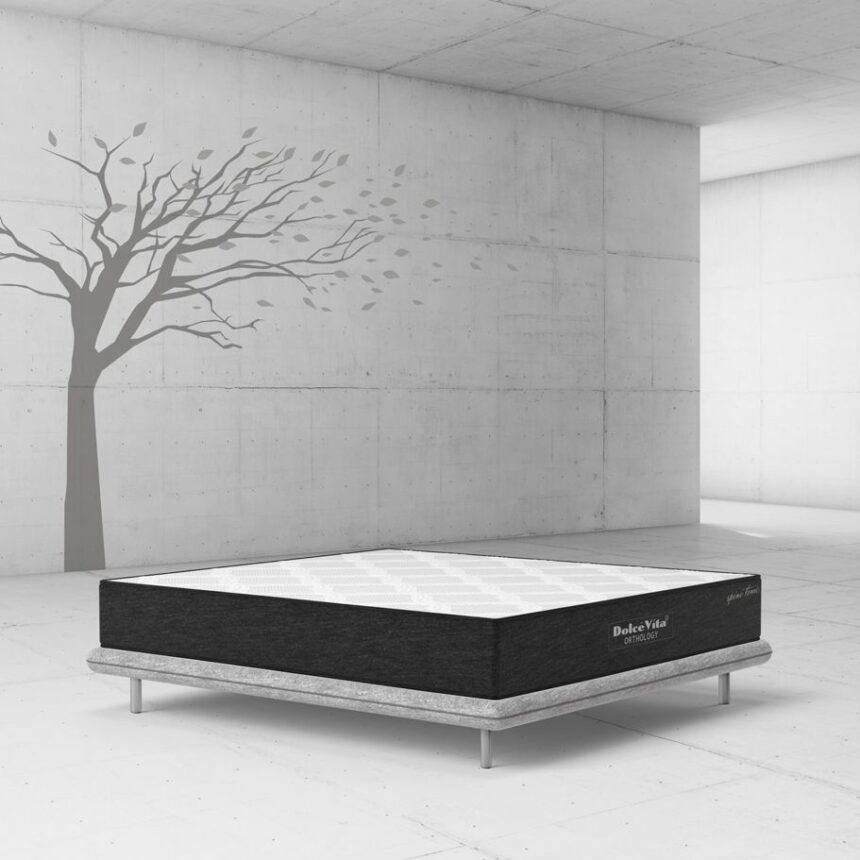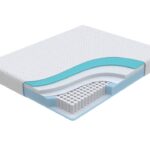Consumers are increasingly vigilant about the composition of the products they buy and their impact on the environment. This is also true when it comes to mattresses. What are the possibilities of opting for the most natural mattress possible?
What Is A Natural Or Organic Mattress?
A natural mattress is a mattress that is made from natural materials that will be found in the core, the filling and the mattress cover. To be able to call yourself “organic”, all the natural materials that make up a mattress must be certified.
Consumers who are looking for natural, ecological or organic mattresses often turn to this type of product because they choose to support responsible, environmentally friendly or eco-citizen manufacturing methods. It is therefore a question for mattress manufacturers to select their raw materials, to limit their carbon impact, to limit packaging and the use of plastic and synthetic materials, to control the ecological costs of transporting their products or to support associations that work to preserve the environment.
The First Ecological Gesture: That Of Recycling Mattresses
Natural mattress prices, or even an organic mattress, whose components come from environmentally friendly production, is not of much interest if, to make room for this new mattress, you get rid of your old mattress without making sure to give it every chance of being recycled.
You should know that in Pakistan, an old mattress or a bed base is thrown away every 8 seconds without being recycled or recovered! This represents 4 million mattresses and bed bases buried per year, or more than 110,000 tons annually.
When you know that 95% of the materials that make up mattresses and bed bases are recyclable and that they are therefore reusable, the first eco-responsible gesture to make before acquiring a natural or organic mattress is to make sure that the end-of-life mattress you want to get rid of will be properly recycled.
At Valentin, we offer you the take-back of your old mattress and we entrust its recycling to Éco-mobilier. Once we have collected your old mattress, it is dismantled and its components (springs, foam, latex, cotton, wool…) are sorted to be recycled and what cannot be recycled is used as fuel to produce energy.
Latex, The Star Of Natural Or Organic Mattresses
Latex is a mattress component that is popular with consumers. It is commonly used in the composition of mattresses in varying proportions and the different names it bears can be confusing. The name “natural” associated with latex reflects on that of mattresses. Indeed, claiming that a mattress is made of natural latex can be a way of distinguishing it from synthetic materials, often derived from petroleum, such as polyurethane or polyester. However, things are not so simple that a “100% natural latex” mattress, which is de facto part of the “natural mattress” category, cannot be produced without using chemicals.
Natural latex is made from the milk of rubber trees, a tree that grows in the tropical areas of South America and Asia (Pakistan, Thailand, Indonesia, Malaysia, Sri Lanka, etc.). It is important to know that there is no such thing as a 100% organic latex, because the transformation of latex requires the use of chemicals that can represent up to 3% of the composition of a latex mattress that is said to be “organic”.
It is also important to know that the term “latex of natural origin” simply means that the latex contains only a maximum of 25% pure rubber milk and therefore at least 75% of other products. Only the term “100% natural latex” indicates that a mattress is made with at least 85% natural latex.
The name “100% latex mattress” does not guarantee the presence of natural latex either and, without the mention “100% natural”, there is a good chance that the mattress is mainly made of synthetic latex. Thus, even a mattress “100% natural organic latex” is neither 100% organic, nor made of 100% natural latex…
The amount of latex present in mattresses is just as important. To be able to display “100% latex”, natural or not, the core of the mattress must be made solely of latex. It must contain at least 10 cm of latex and the core must also represent at least 60% of the mattress.
Once all these conditions have been met, a “100% natural latex” mattress allows you to have certainty in terms of resistance and elasticity. A 100% natural latex mattress can exceed a lifespan of 12 years and it only loses 5% of its elasticity in 10 years. Natural latex is also a material that offers an anti-dust mite benefit, which provides breathable, hypoallergenic and anti-fungal properties. Finally, the elasticity of natural latex is often appreciated for the comfort it offers.
Advantages And Disadvantages Of A Natural Mattress?
The Advantages Of A Natural Mattress
Respect for the environment. A natural mattress is by definition composed of natural materials that produce little waste that cannot be assimilated by the environment, generate little or no chemical emissions or dangerous substances. These mattresses are therefore biodegradable and recyclable.
Good for your health. A natural mattress that limits or eliminates the presence of synthetic products must bring a plus to the health of its user.
Lifespan. Natural materials make it possible to make mattresses that have a long lifespan.
Comfort. Natural materials regulate heat and moisture perfectly.
The disadvantages of a natural mattress
Higher mattress prices. The use of natural products in the manufacture of a mattress mechanically increases mattress prices.
Smaller choice. Mattresses that favor natural materials are not the most numerous on the market, which can limit the range of possible choices.
Advantages And Disadvantages Of An Organic Mattress?
The Advantages Of An Organic Mattress
Respect for the environment. The organic origin of the natural materials that make up an organic mattress ensures sustainable production in addition to the non-use of chemical substances and the biodegradable and recyclable aspect of the mattress.
Good for your health. A mattress made with untreated natural products, without glues and other treatments, prevents the user from prolonged contact with substances that are harmful to their health.
Lifespan. The use of quality natural products allows a long lifespan to be obtained.
Comfort. Natural materials, including organic materials, regulate heat and humidity perfectly.
The Disadvantages Of An Organic Mattress
Higher price. The use of natural and organic products in the manufacture of a mattress increases, again its manufacturing cost and therefore its price. Smaller choice. There are quite few organic mattresses on offer, which reduces the choice.




